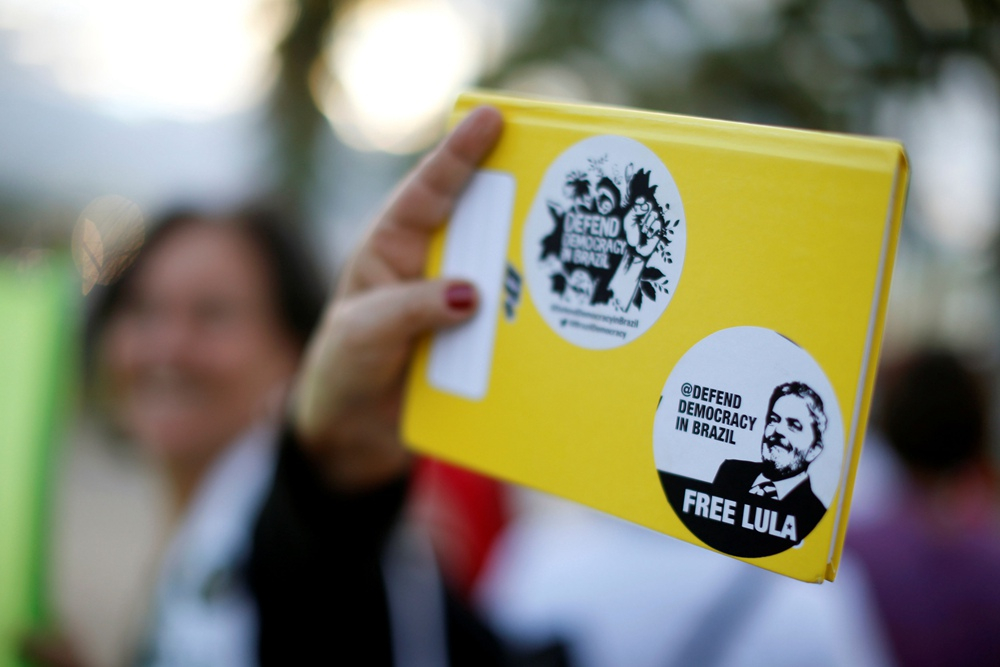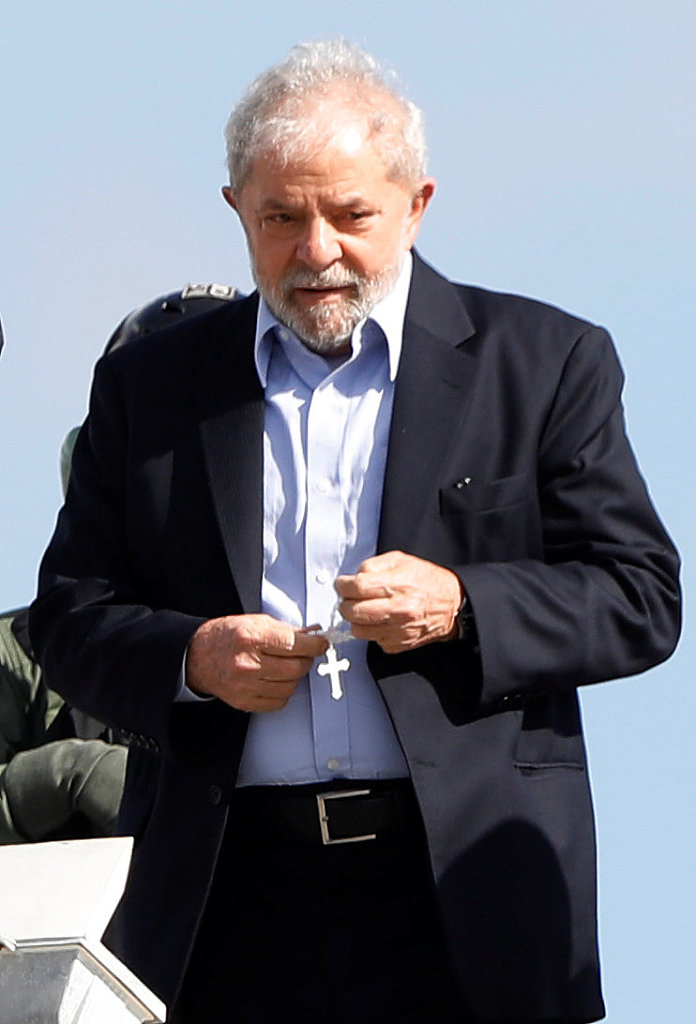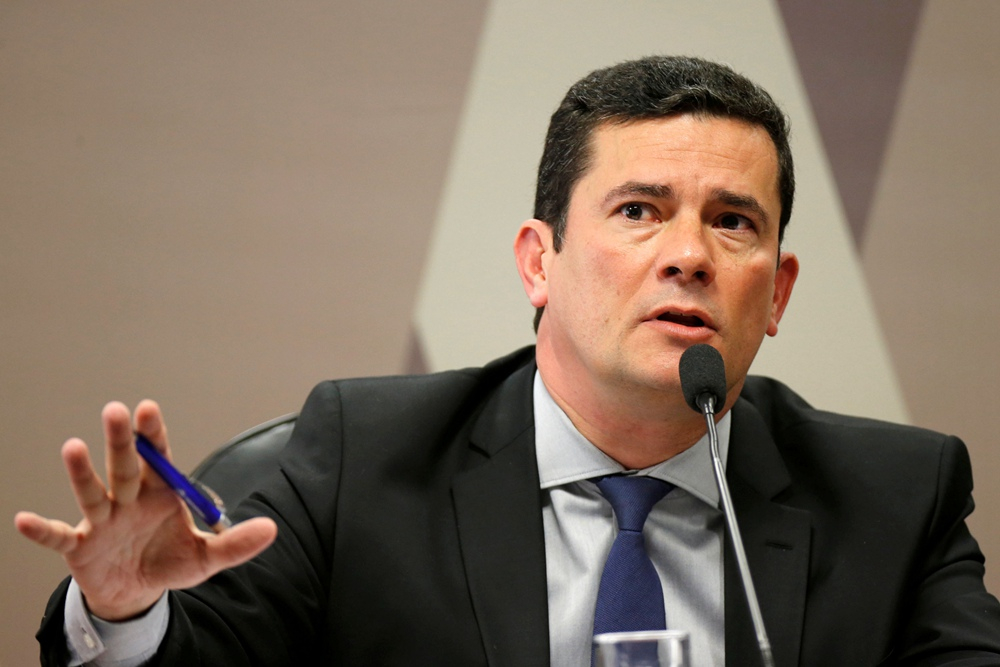
Brazil's Supreme Court on Tuesday rejected a request to free leftist icon Luiz Inacio Lula da Silva from prison while they consider whether Justice Minister Sergio Moro, who was the convicting judge, was biased.
The court voted 3-2 to postpone debate on whether Moro had been impartial when he handed Lula his first conviction in 2017 – which effectively ended his hopes of contesting the 2018 presidential election – and dismissed a petition to let Lula out of jail until then.
Moro, the powerful judge behind the so-called Car Wash corruption probe before he was appointed to President Jair Bolsonaro's cabinet in January, has been accused of conspiring with prosecutors to keep Lula out of the election race that he was favorite to win.

Supporters of Brazil's former president Luiz Inacio Lula da Silva protest outside Brazil's Supreme Federal Court during a session to try his appeal in the court in Brasilia, Brazil, June 25, 2019. /Reuters Photo
Moro has denied any wrongdoing and ignored calls to resign after The Intercept investigative website, co-founded by U.S. journalist Glenn Greenwald, published leaked Telegram messages purportedly showing he improperly advised and guided Car Wash investigators.
Lula's legal team on Tuesday argued for the 2017 conviction to be quashed, but the court refused.
"We had already presented countless evidence that the ex-president did not have a fair, impartial, independent trial," lawyer Cristiano Zanin Martins told reporters after the hearing. "He did not commit a single crime, and he has the right to be judged by an impartial judge."

Brazil's former president Luiz Inacio Lula da Silva arrives at the headquarters where he is serving a prison sentence, after attending the funeral of his grandson in Curitiba, Brazil, March 2, 2019. /VCG Photo
Lula is serving eight years and 10 months after being found guilty of accepting a seaside apartment as a bribe for helping the OAS construction company get lucrative deals with state oil firm Petrobras. He is one of scores of high-profile figures in politics and business to be caught up in the sprawling corruption probe that uncovered large-scale looting of Petrobras in a massive kickback scheme.
A second conviction was handed down in February for which he was sentenced to almost 13 years, and he still faces another half dozen corruption trials.

Brazil's Justice Minister Sergio Moro speaks during a Commission of Constitution and Justice in the Brazilian Federal Senate in Brasilia, Brazil, June 19, 2019. /Reuters Photo
Lula, who led Brazil through a historic boom from 2003 to 2010, has denied all the corruption charges against him. He has long argued they were politically motivated to prevent him from competing in the 2018 election that was ultimately won by far-right Bolsonaro.
After losing appeals against his first conviction, Lula could see a change of fortune if the Supreme Court were to find that Moro had been biased in his case. The court is expected to decide later this year.
(Cover: A supporter of Brazil's former president Luiz Inacio Lula da Silva holds a sign reading "Free Lula" outside Brazil's Supreme Federal Court during a session to try his appeal in the court in Brasilia, Brazil, June 25, 2019. /Reuters Photo)

Copyright © 2018 CGTN. Beijing ICP prepared NO.16065310-3
Copyright © 2018 CGTN. Beijing ICP prepared NO.16065310-3